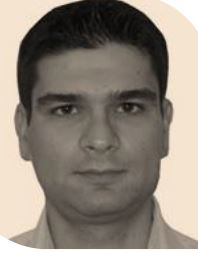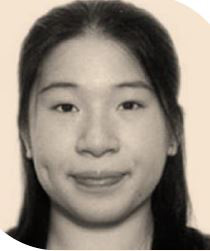Meet the food scientists of the future
Natalie Chiu, Konstantinos Thymiatis are 1st prize winners of the Cargill-sponsored EFFoST Student of the Year Award
November 13, 2015
“What’s not to love?” exclaimed student Konstantinos Thymiatis, when asked what had inspired him to get involved with food science. “It combines science – fundamental or applied – with food!”
Thymiatis, who is studying agronomy and food science at the Aristotle University of Thessaloniki in Greece, is one of two first prize winners of the Cargill-sponsored “EFFoST Student of the Year” awards, presented in Athens, Greece, at EFFoST’s annual conference on November 12th.
The European Federation of Food Science and Technology award recognizes excellence in food science and technology research. It was open to European students currently studying for either a BSc/MSc or PhD in food science or technology, and was given by Didier Bonnet, Cargill director of global food research.
Thymiatis won in the BSc/MSc category. Natalie Chiu, who studies food science at the University of Nottingham in the UK, won in the PhD category.
“I was always interested in cooking and baking,” said Chiu. “During school we were taught a module of food chemistry and my interest in the interaction between ingredients grew from there. As my passion for the science of food expanded, I wanted to study food science at university.”
 Konstantinos Thymiatis
Konstantinos Thymiatis
Q: How do you think the world will cope with 9 billion people?
A: “An increasing population in combination with the effects of climate change (loss of arable land, unstable weather conditions) will need many diverse solution. Use of GMOs (after sufficient research regarding their safety), decreases in meat and dairy consumption, minimization of food loss across the supply chain, increasing land productivity (particularly in Sub-Saharan countries), and the possible inclusion of insects or agricultural by-products in our diets are some of the possible solutions that could help us face this challenge.”
 Natalie Chiu
Natalie Chiu
Q: How do you think the world will cope with 9 billion people?
A: “In the 18th century, Malthus first proposed that over-population would lead to famine. However, through innovative advances, such as mechanization, the development of synthetic fertilizers, and the green revolution, food production has continued to provide for a growing population. Current research into genetically modified organisms, new sources of food and the utilization of waste streams will help tackle the challenges of feeding a world with 9 billion people.”
Young scientists, advanced thinking
According to Chiu, her research project explored a novel method of lowering levels of sodium through entrapping and subsequent release during consumption via breakdown of the starch emulsifier. “This research may offer the food industry new avenues to formulate food products that are healthier for consumers,” she said, adding that her dream is to create a food start-up to redesign and reinvent foods for a healthier future.
Thymiatis’s research project entailed developing a process to valorize grape pomace, the main solid waste of the wine-making industry. “The aim of the process was to create an extract of phenolic compounds to transform this waste into a valuable by-product,” he said. “Phenolic compounds can have significant applications in the food, pharmaceutical and cosmetic industries.”
Thymiatis explained that he applied for the award to draw attention to the problem of waste management in the food industry and transform it into a potential solution that benefits both businesses and society.
Proud to partner with EFFoST
“We are delighted to partner with EFFoST and sponsor the Student of the Year award for the fifth time,” said Cargill’s Bonnet. “All those on the judging panel were very impressed by the talent and innovation demonstrated by the applicants. These young scientists are making outstanding strides in their fields of research that will be critical for the future of the food industry.”
Bonnet explained that as global population growth continues – with more than 9 billion people expected by 2050 – Cargill believes it is possible to feed this growing population and that we need to embrace science and technology to take up the global food security challenge.
“By recognizing the outstanding achievements of the award applicants, we are not only celebrating the success of these talented students, but hopefully encouraging the continued development of our industry and the next generation of food scientists,” said Bonnet.
Also recognized as award finalists were Dilara Konuk from the Izmir Institute of Technology in Turkey; Valerie Pietsch from the Karlsruhe Institute of Technology in Germany; Valerie Vancauwenbergh from the Katholieke Universiteit Leuven in Belgium; and Yifat Cohen from the Technion-Israel Institute of Technology in Israel.
Cargill’s sponsorship of the award included cash prizes for the first, second and third placed students, as well as an all-expense paid one-day visit to Cargill’s Research and Development Centre in Vilvoorde, Belgium, for all finalists.
